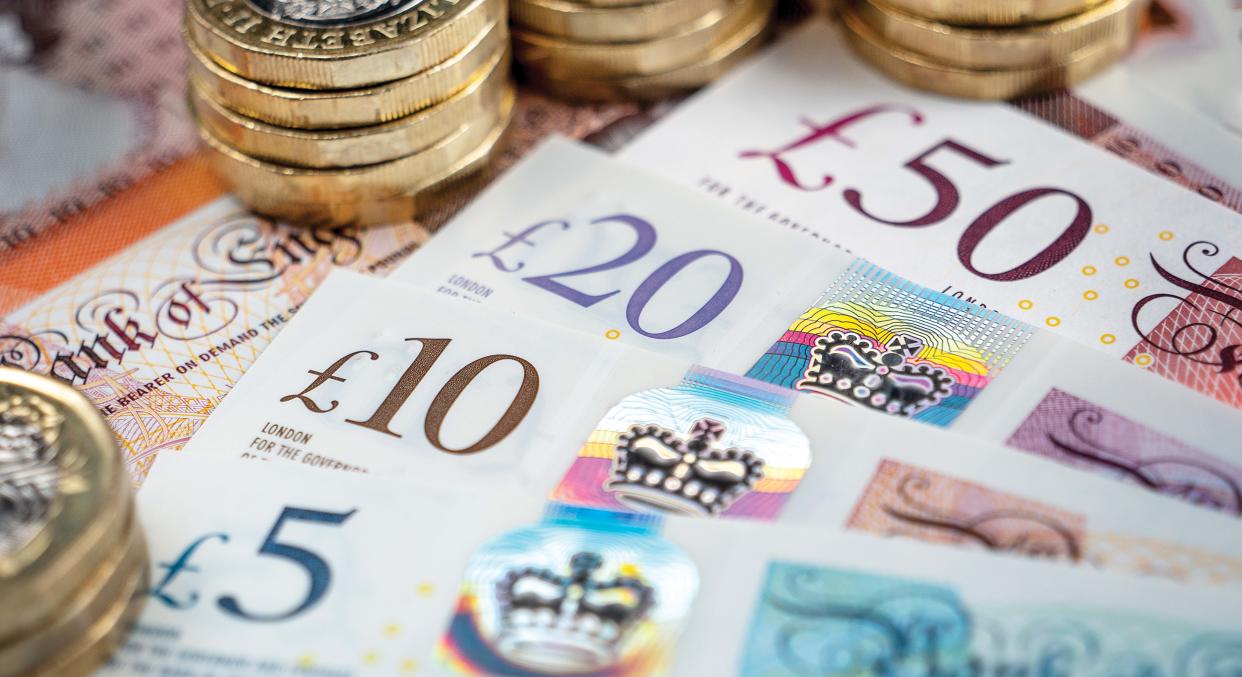How to make the most of your tax allowances

With the end of the tax year looming, many are concerned about whether they are using their tax allowances to the best of their advantage.
In some areas, such as ISAs and pensions, it is very straightforward to work out your allowances. However, in other areas things are more complicated.
Yahoo Finance UK has put together this guide so that you can make the most of your allowances before the end of the tax year on 5 April.
Pensions
Every year, you are allowed to save a certain amount of money in your pensions pot without having to pay tax on it.
This maximum amount is known as the annual allowance.
For 2021/22, the annual allowance is £40,000 which means that you only start paying tax on your pension once you go above this amount.
The good news is that those who have spare money to put away towards the end of the tax year and are yet to use this allowance can still take advantage of this tax relief.

Read more: Workers on low pay to benefit as thousands more brought into state pension scheme
Adrian Lowery, personal finance expert at investing platform Bestinvest, said: "The taxman automatically tops up pension payments by the basic rate of 20% and those paying higher or additional rates of tax can claim back another 20% and 25% respectively."
Once you have used up all of your current year allowance, you may also be able to make extra pension contributions by carrying forward unused pension allowances from the previous three years.
"This can be of particular interest to workers, like the self-employed or small business owners, who have inconsistent earnings and enjoy much higher income in some years than others," Lowery added.
In addition, there is a lifetime allowance which is the amount you can hold in pensions over your lifetime, without incurring tax penalties when you take pension benefits.
This year it's £1,073,100.
Savings and investments
Getting an ISA allows you to save and invest money in a tax-efficient way.
The current ISA allowance is £20,000 for 2021/22, which means any sums up to that amount are exempt from income tax on cash interest payments.

Moreover, both income and capital gains from shares and bonds are tax-free within ISAs.
Lowery said: "While cash ISAs have historically been popular with savers, the wind has been taken out of their sails somewhat by the personal savings allowance, which means that interest payments of up to £1,000 on any savings account for basic rate taxpayers are tax exempt. That falls to £500 for higher-rate taxpayers, and zero for additional rate.
"With today’s low interest rates, you’d need substantial cash sums to worry about paying tax on interest payments – though rates are starting to rise."
He highlighted that only those who have amassed substantial cash savings and the highest earners need to consider utilising their ISA allowances if they are not already being used for investments.
Dividend income
All dividends earned within an ISA are tax free, whether they are received by pension funds or shares. The same goes for incomes from bonds.
But taxpayers are also given a £2,000 allowance for dividend income on top of the personal income tax allowance of £12,570.
This means that if your income comes solely from dividends, such as a share in a private company, you could earn up to £14,570 tax-free.
"This is particularly important for company owners who pay themselves in dividends to take advantage of the lower rates compared to income tax – not least because dividend tax is set to rise," Lowery said.
This year, the basic rate is 7.5% but its been confirmed to go up to 8.75% in 2022/23.
The higher rate of dividend tax which is currently set at 32.5% is also going up, to 33.75%.
Read more: Millions of households to get £150 council tax rebate
Capital gains
When you make a profit from selling an asset that has increased in value, you have to pay capital gains tax.
This includes second property or buy-to-let, shares and funds (unless held in an ISA or pension), cryptocurrency holdings, a business or certain valuable possessions if they are sold for over £6,000.
The tax is charged on the increase in the value of the asset only and the personal allowance is £12,300 at present.
An added benefit is that assets which are owned jointly with another person's allowances can be combined, meaning up to £24,600 of any gain is tax-free this year.
Louise Higham, chartered financial planner at Tilney Smith & Williamson, added: "Married couples also have the flexibility to transfer assets to whichever of them is expected to incur the lowest CGT charge.
"Transfers of assets between married couples – known as inter-spousal transfers – do not trigger any taxable events and so this is one of the most straight forward ways to maximise tax efficiency."
Shares held outside of ISAs, for example through employee save as you earn (SAYE) schemes, can be transferred into ISAs within 90 days of the scheme maturing.
"Otherwise, the approach required is to sell shares owned and then repurchase them within an ISA – a process known as “Bed and ISA," Lowery said.
"Care needs to be taken not exceed the annual capital gains tax allowances when doing this, but once in an ISA, all future gains will be tax free."
Salary sacrifice
Some companies run schemes which allow employees to give up their gross income in return of a benefit or product.
Like annual allowance, these schemes reduce your taxable income.
A popular example of salary sacrifice is the Cycle to Work scheme that allows employees to 25-39% on a bike and/or accessories, but it is also offered by some firms as a method of contributing to the pension scheme.
Lowery said: "In this case, salary sacrifice provides savers with National Insurance relief on top of the usual pension tax relief, making the boost to your pot greater – and can even sometimes mean you drop a tax band if your salary is just over a threshold."
Marriage allowance

Good news for couples: If one person in a marriage or civil partnership earns less than the personal allowance – and so does not pay tax – while the other is a basic rate taxpayer, the former can transfer up to £1,260 of their personal allowance to their partner for the year 2021/22.
This could result in a tax reduction for the higher earner of up to £252, but it can also be backdated four years if you have been eligible and haven't claimed it.
Therefore, the total tax benefit could be £1,220.
Financial gifts
There are a number of tax-free financial gifts that you can make each year, including gifts to a civil partner, husband or wife if their permanent home is in the UK.
These leave your estate immediately so there is no inheritance tax to pay.
Gifts can be up to £3,000 each year, though this can be carried over for one year, permitting a total of £6,000.
An unlimited number of gifts up to £250 can be given per person, while wedding gifts to a child can be up to £5,000, up to £2,500 for a grandchild or great-grandchild, and up to £1,000 for anyone else.
Other tax-efficient investments
There are more specialist and higher-risk tax-efficient investments, such as venture capital trusts (VCTs) and enterprise investment schemes (EIS), which offer generous tax breaks to encourage investment into smaller, newer companies.
However, they come with high risks and so may not be suitable for everyone.
That being said, if you are a higher-rate or additional-rate taxpayer who can afford to risk the possibility of investment going down, you could also consider them.
The benefits include a 30% income tax rebate on new investments up to £200,000 per tax year – as long as you have paid the amount of tax being rebated and hold the VCT for at least five years – tax free dividends and no capital gains tax
As with any other financial decision, it is also recommended to weigh out the costs and benefits before taking out high risk investments.


